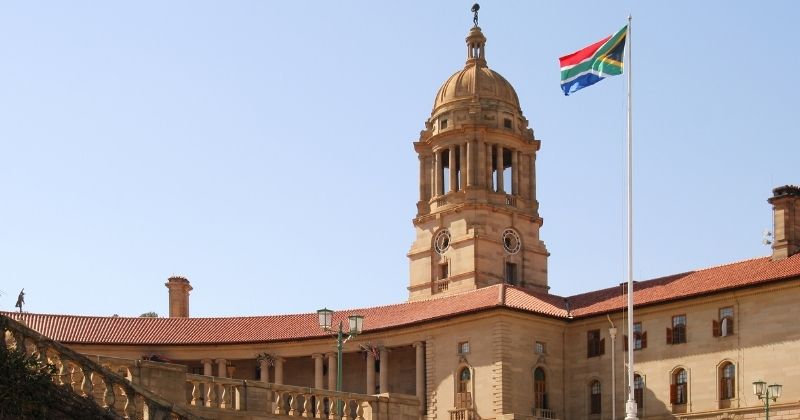
South Africa’s economic prospects appear to be improving after more than a decade of sluggish growth. This renewed momentum is supported by a combination of efforts to tackle long-standing constraints on growth and an anticipated increase in consumer spending. Leading economic analysts have highlighted the steps being taken to address critical issues, which could steer the country towards a stronger economic trajectory this year. These measures, however, come at a time when global economic uncertainty looms, adding urgency to their implementation and success.
Key Takeaways
- Growth projections of 1.7% signal recovery: South Africa’s economy is expected to expand by 1.7% this year, bolstered by lower interest rates, increased investment, and improvements in infrastructure sectors such as electricity and logistics.
- Political stability supports reform efforts: The coalition government formed after the ANC lost its majority has created an environment conducive to economic reforms, though consistent implementation remains critical.
- Poverty and unemployment remain pressing challenges: Economic growth is only slightly above population growth, leaving unemployment and poverty largely unresolved and highlighting the need for more inclusive growth strategies.

Economic Growth Projections for the Year
Projections for South Africa’s economic growth in the current year have improved significantly. Economists polled by Bloomberg forecast a growth rate of 1.7%, a notable increase compared to the 0.7% expected for 2024. This marks a departure from the below-1% average growth seen over the past decade. Analysts believe these estimates reflect a potential stabilisation of the economy after years of challenges and deterioration. However, experts warn that this growth trajectory remains fragile, with risks of regression if critical reforms falter or external conditions worsen.
While South Africa is making strides in economic recovery, the financial gap between nations and ultra-rich individuals continues to widen. The staggering reality that South Africa’s GDP Overshadowed by Elon Musk’s Wealth highlights how wealth accumulation is shifting towards private individuals rather than economies, sparking debates on wealth distribution and economic sustainability.
Key Factors Supporting Economic Recovery
Several factors are driving South Africa’s economic recovery. Political cooperation, facilitated by the coalition government formed after the ANC lost its majority in last year’s elections, is seen as a significant enabler of reform. Additionally, lower interest rates, increased levels of fixed investment, and improvements in critical sectors such as electricity, transportation, and logistics are expected to contribute to growth.
The central bank is anticipated to reduce interest rates by 50 basis points in the first quarter, bringing the rate to 7.25%. Inflation is predicted to remain below the 4.5% midpoint of the bank’s target range. Since the beginning of the easing cycle in September, a cumulative rate reduction of 100 basis points could stimulate consumer spending, potentially adding 30 basis points to the overall growth rate.
This easing is expected to provide much-needed breathing space to households burdened by debt and businesses striving to recover from a prolonged downturn.

Challenges of Poverty and Unemployment Persist
Despite the expected growth of 1.7%, concerns remain regarding its impact on poverty and unemployment, which are among the highest globally. The projected growth rate is slightly above the population growth rate of 1.3% and nearly matches the rate of labour market expansion, highlighting the need for stronger and more inclusive economic growth. South Africa’s inability to substantially reduce unemployment has long been a ticking time bomb, threatening social stability and undermining economic progress.
The lingering question on many minds remains: Is South Africa in a Recession? By evaluating key economic indicators and global market trends, this deep dive unpacks the country’s past struggles and future prospects for sustained economic recovery.
A Crucial Year for Reforms and Progress
This year is regarded as pivotal for South Africa’s long-term economic prospects. Analysts stress that ongoing reforms and policy improvements are essential to achieving sustained growth. Ensuring stable electricity supply, upgrading water infrastructure, and addressing inefficiencies in transportation systems are seen as critical areas for progress.
Reforms implemented in 2024, such as changes to work-permit regulations aimed at attracting skilled professionals and boosting tourism, are viewed as positive steps. However, further structural reforms are necessary to unlock the potential for higher growth rates, reduce unemployment, and ease government debt burdens. The success of these reforms depends heavily on consistent political will and the ability to overcome entrenched bureaucratic obstacles.
South Africa’s economic recovery is evident not only in GDP growth but also in improving employment numbers. Strengthening sectors such as finance, mining, and renewable energy are playing a vital role in job creation. This positive momentum is reflected in South Africa’s Unemployment Rate Drops to Lowest in Over a Year as Key Sectors Strengthen, highlighting the impact of economic resilience on the job market.
Risks to Economic Acceleration
South Africa faces several risks that could hinder its ability to achieve faster economic growth. Domestically, financial challenges at the local government level, coupled with limited state capacity and corruption in procurement processes, continue to impede planning and investment. On the international front, slow growth in China, South Africa’s largest trading partner, and uncertainties stemming from global monetary policies and geopolitical developments present additional hurdles. With global trade under pressure, South Africa’s export-dependent industries may struggle to maintain momentum, further complicating recovery efforts.
While challenges persist, economic analysts maintain a cautiously optimistic outlook for South Africa this year. Progress on implementing reforms, coupled with a cooperative political environment, could pave the way for improved growth outcomes. However, sustained focus and commitment will be essential to navigate both domestic and international challenges and realise the country’s economic potential. The road ahead is uncertain, but with decisive action and broad-based support, South Africa has the opportunity to turn its economic fortunes around.
The South African Reserve Bank’s strategy to curb inflation has led to Repo Rate Increases, affecting businesses, homeowners, and consumers alike. This guide breaks down the implications for loans, investments, and overall economic stability.
Conclusion
South Africa stands at a crossroads in its economic journey, with opportunities for recovery emerging after years of stagnation. While reforms and structural improvements provide a foundation for growth, the challenges of unemployment, poverty, and global uncertainties require unwavering focus and decisive action. The country’s ability to sustain this momentum will depend on consistent policy implementation, strengthening state capacity, and fostering resilience against external risks. With collaborative efforts across all sectors, South Africa has the potential to achieve the inclusive growth needed to transform its economic outlook.
Fast, uncomplicated, and trustworthy loan comparisons
At Arcadia Finance, you can compare loan offers from multiple lenders with no obligation and free of charge. Get a clear overview of your options and choose the best deal for you.
Fill out our form today to easily compare interest rates from 19 banks and find the right loan for you.


